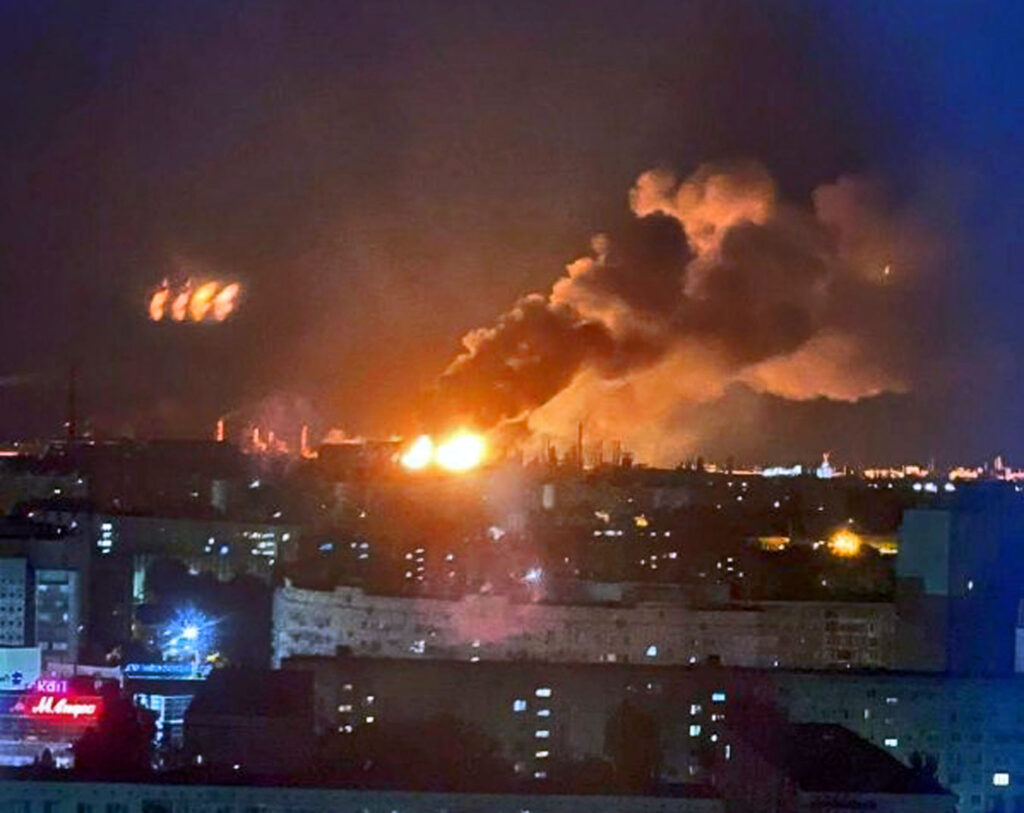Ukraine knocks out 17% of Russia’s oil capacity — and that’s just this month, Reuters says

Ukraine has disabled 17% of Russia’s oil refining capacity through a wave of recent drone strikes targeting key infrastructure, Reuters reports. The attacks, carried out over the past month, have disrupted fuel processing, sparked gasoline shortages, and hit the core of Moscow’s war economy as Washington seeks to broker a peace deal.
Ukraine strikes 10 refineries, targets export terminals
Reuters calculated that Ukraine’s strikes have taken out 1.1 million barrels per day of Russian oil refining capacity. The drones targeted 10 plants, including Lukoil’s Volgograd refinery and Rosneft’s facility in Ryazan. Other damaged refineries include those in Rostov, Samara, Saratov, and Krasnodar regions.
In addition to oil refineries, Ukrainian drones attacked the Druzhba pipeline and Novatek’s Ust-Luga export terminal and gas processing complex on the Baltic Sea. The fire at the Novoshakhtinsk refinery in Rostov Oblast was still burning as of 25 August, days after being struck by drones.
The Syzran refinery in Samara Oblast was critically affected — key equipment was destroyed, rendering it unable to function. Afipsky in Krasnodar Krai and the facility in Novokuybyshevsk were also hit.
Support our media in wartime your help fuels every storyFuel shortages hit occupied territories and Russia’s south and far east
Fuel shortages followed in parts of Russian-occupied Ukraine, southern Russia, and the Russian Far East. Moscow had already banned gasoline exports in July due to growing domestic demand.
According to Sergei Vakulenko of the Carnegie Russia Eurasia Center, the damaged plants have lost only part of their output, but even limited disruptions can impact supply. He previously worked for Gazprom Neft.
Russia depends on oil and gas for a quarter of its budget revenues. This year, it raised defense spending by 25%, reaching Cold War–era levels. Despite sanctions, Moscow continues large-scale weapons production. Still, economic growth has slowed, causing concern in the Kremlin.